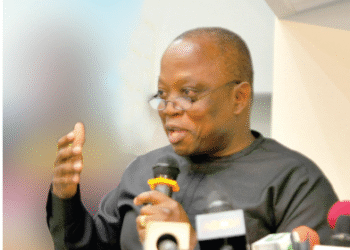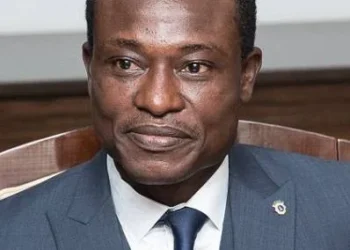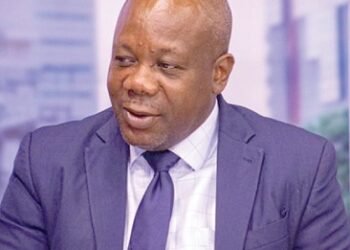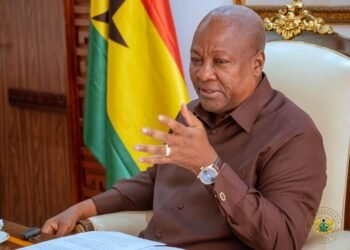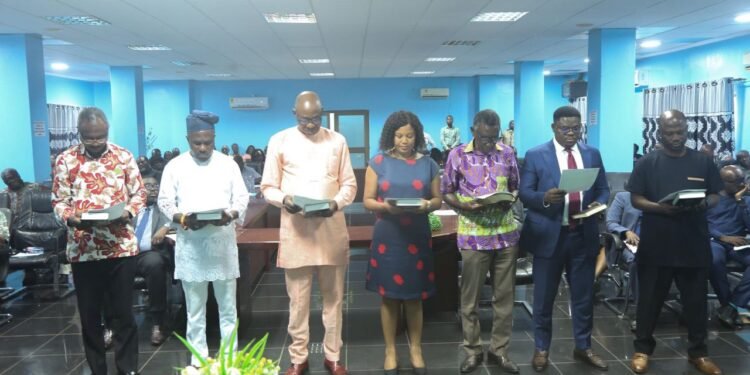The Member of the National Economic Dialogue Planning Committee, Professor John Gatsi has highlighted the critical need for inclusive national conversations to address Ghana’s economic challenges.
Speaking about the relevance of the dialogue, he emphasized the significance of cross-sectoral discussions to identify short, medium, and long-term solutions for economic stability and growth. He stated;
“It is important that from time to time, you create a platform to get cross-fertilization of ideas from Ghanaians who, otherwise, will not have the opportunity to contribute to national dialogue and national development.”
Professor John Gatsi Member of the National Economic Dialogue Planning Committee
He stressed that such dialogues foster inclusiveness in policymaking, build confidence, and create cohesion among stakeholders in the management of the economy.
He argued that these platforms enable individuals and institutions to collectively decide on policies and strategies to manage the economy for the benefit of all citizens. The dialogue will also help identify clear pathways for addressing Ghana’s economic difficulties and planning for the nation’s future.
Professor Gatsi acknowledged that Ghana’s economy is not in the best of states. He emphasized;
“If we look at the debt situation, the debt is still very high. Even though we are now out of default, we are not out of the debt burden that we were talking about some years back.”
Professor John Gatsi Member of the National Economic Dialogue Planning Committee
He also highlighted inefficiencies in debt management, emphasizing the need for better alignment between debt acquisition and asset creation. Inflation and the rising cost of living were other concerns he raised, pointing to the need for immediate interventions to stabilize the economy.
On production and agriculture, Professor Gatsi stressed that Ghana is not maximizing its production potential, particularly in agriculture. He underscored the need for inclusive and strategic approaches to enhance agricultural productivity, which would contribute significantly to economic growth and food security.
Professor Gatsi also identified inefficiencies in Ghana’s education system, calling for reforms to ensure stability and improve outcomes.
He criticized the current calendar system, where students in different levels of secondary school vacate at different times, creating instability in the academic structure. He reiterated;
“We want form 1, form 2, and form 3 students to be in school and vacate at the same time so that there will be some kind of stability in the timetable, the timing, and contact hours of our school system.”
Professor John Gatsi Member of the National Economic Dialogue Planning Committee

He emphasized the need to prioritize education reforms as part of the national dialogue to ensure that the education sector contributes effectively to Ghana’s development.
The dialogue will focus on designing a roadmap to address Ghana’s economic difficulties. He stressed;
“It is not about trying to hide the difficulties that were inherited, but to surmount the difficulties and determine what we should do in the short, medium, and long term.”
Professor John Gatsi Member of the National Economic Dialogue Planning Committee
He highlighted the importance of laying a foundation that would benefit future generations, ensuring that Ghana is placed on a sustainable development path.
Timeline and Integration with the National Budget
The National Economic Dialogue Planning Committee has four weeks to submit its report. Professor Gatsi indicated that some of the recommendations from the dialogue could potentially inform Ghana’s national budget.
This timeline underscores the urgency of the dialogue and the importance of integrating its outcomes into the nation’s fiscal planning.
Professor John Gatsi’s insights provide a clear framework for the upcoming national economic dialogue. By fostering inclusiveness, addressing critical challenges, and designing a roadmap for recovery, the dialogue aims to create a collective vision for Ghana’s economic future.
The focus on key areas such as debt management, inflation, agriculture, and education reflects a commitment to tackling pressing issues while ensuring long-term sustainability. As the committee works to finalize its report, the outcomes of this dialogue are expected to play a pivotal role in shaping Ghana’s economic policies and development agenda.
READ ALSO; President Mahama Approves Key Appointments to the Office of the Vice President





